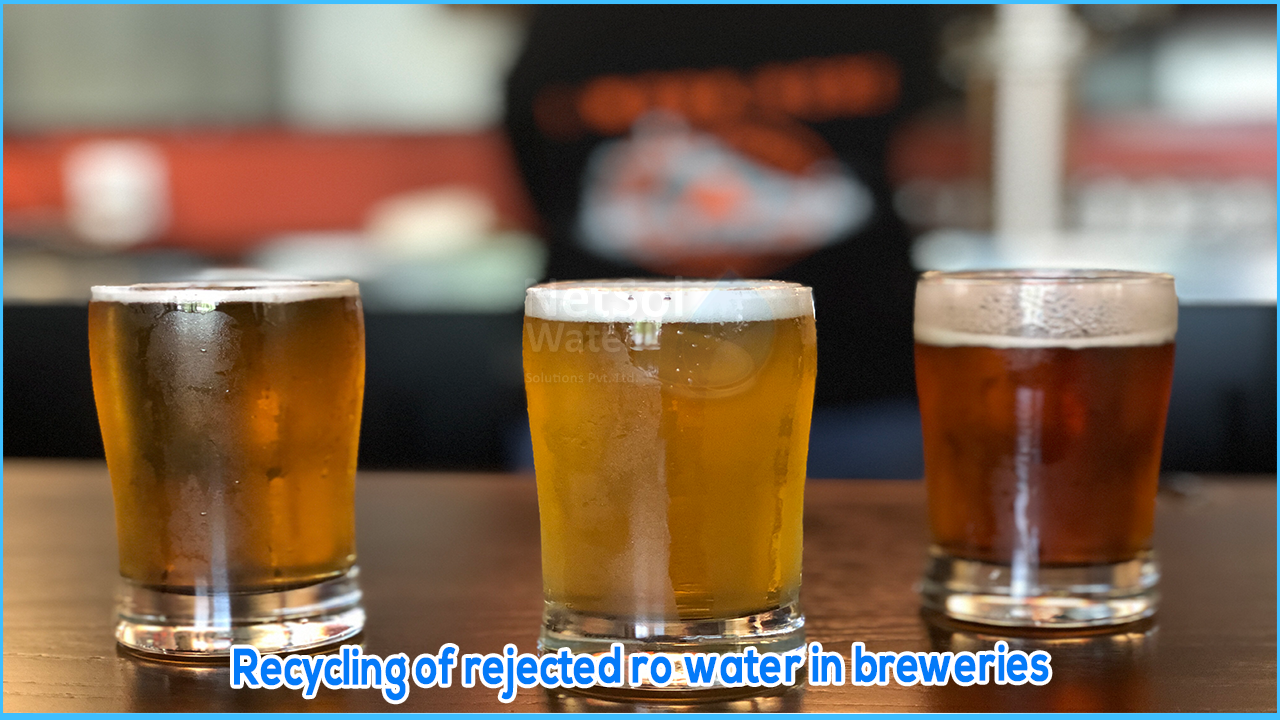WHAT IS A BREWERY?
 A brewery, also known as a brewing company, is a company that manufactures and sells beer. A brewery or a beer house is the location where beer is commercially produced, and distinct sets of brewing equipment are referred to as plants. Water, a fermentable starch source, such as malted barley, a brewer's yeast to produce the fermentation, and a flavouring, such as hops, to offset the sweetness of the malt are the basic ingredients of beer.
A brewery, also known as a brewing company, is a company that manufactures and sells beer. A brewery or a beer house is the location where beer is commercially produced, and distinct sets of brewing equipment are referred to as plants. Water, a fermentable starch source, such as malted barley, a brewer's yeast to produce the fermentation, and a flavouring, such as hops, to offset the sweetness of the malt are the basic ingredients of beer.
WHAT IS WASTE WATER?
Wastewater from industrial laundries contain a unique combination of suspended solids, oils, greases, heavy metals, and volatile organic compounds (VOCs). NETSOL's DAF units and filter presses are effective at removing these solids from laundry wastewater and can assist you in recycling water to optimise operations.Contaminants in source water can wreak havoc on HVAC systems, piping systems, and point-of-use applications. Poor water quality can also reduce equipment life, reducing reliability and increasing operational costs.
NETSOL Water recognises the significance of maintaining proper water quality in facilities to ensure efficient operation. Our diverse portfolio of water treatment products and services ensures we have the right solution to meet the specific needs of your facility, whether it's filtration for particulate removal, disinfection, or pre-treatment of boilers or cooling towers.
WASTE WATER CHALLENGES IN BREWERIES
Breweries and distilleries, whether industrial or craft-scale, use water more efficiently and treat it to higher standards than ever before, all while continuing to produce high-quality beers and spirits for consumers. However, challenges remain, owing to new sustainability goals, stricter regulations, and rising water procurement costs.
Wastewater is produced as a result of processing or washing. The following factors prevent discharge or reuse of wastewater from these industries: pH, total dissolved solids (TDS), total suspended solids (TSS), biological oxygen demand (BOD), chemical oxygen demand (COD), grease/fats, and other organics (e.g., sugars, alcohol, proteins, yeast).
REQUIREMENT OF A TDS/ORGANIC SOLUTIONS?
Numerous breweries and distilleries use reverse osmosis (RO) to treat their waste for release or reuse. TDS and most organics are rejected by RO. If only TDS removal is required, EDR is an option. Both EDR and RO generate freshwater while reducing the volume of waste residuals. If water rates or disposal costs are an issue, customers may benefit from improving system recovery by producing more freshwater and producing less waste volume.
Netsol Water provides high recovery and ion selective EDR systems that keep scaling ions out of brine residuals, allowing for much higher recoveries. We also advance RO system recoveries while maintaining performance, cost-effectiveness, and longevity.
CONCLUSION
Each brewery industry has its own set of wastewater sources that must be carefully assessed in order to find the best treatment and reuse solution. NETSOL WATER can help with issues like increased process demand, compliance with stricter regulations, water and discharge costs, and corporate sustainability initiatives. Engineers, consultants, and plant managers can benefit from our extensive application expertise and broad range of equipment solutions to help them procure and deliver a comprehensive solution with minimal disruption to existing operations.



